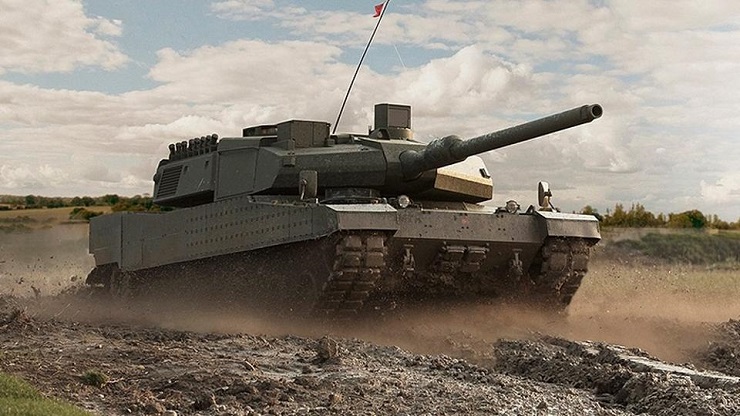While Saudia Arabia/UAE and Qatar have been successful in bringing their more than 3 years old diplomatic stand-off to an end, and the moment has been called a “big breakthrough”, there is no gainsaying that the ground realities of the Gulf have already changed to an extent where a mere normalization wouldn’t automatically produce the so-called “Arab Unity.” Past three years have seen Qatar developing meaningful ties with Iran and Turkey. Qatar has also strengthened its military power and it remains a patron of Muslim Brotherhood. Elsewhere in Yemen, Qatari backed Islah Party remains opposed to the UAE backed Southern Transnational Council (STC). While Saudi Arabia has been supporting Islah party, a group affiliated with Muslim Brotherhood, their alliance recently seemed to have fallen apart due to Saudia’s blatant criticism of the Brotherhood.
The recent détente between Saudia/UAE and Qatar is, therefore, not a result of a sudden convergence of mutual interests or a realization that Saudia led blockade of Qatar was benefiting Iran and Turkey, it is an outcome of Saudi/Emirati inability to force the smallest Gulf state with second highest gas reserves in the world into political submission. This is evident from the fact that Saudia/UAE decided to end blockade without Qatar fulfilling any of the 13 demands that the former had presented as a pre-condition to end the blockade.
While these demands included clauses about severing all ties to “terrorist organizations”, “shutting down Al-Jazeera”, “terminating Turkish military presence in Qatar”, and “curbing diplomatic ties with Iran”, the latest agreement mentions none of these. Instead, the agreement postulates and end of Saudi blockade of Qatar, with Doha agreeing to drop all legal actions against Saudia, UAE, Egypt and Bahrain, and both sides stopping media campaigns against each other.
Soon after the agreement, Qatar was quick to announce that its relations with Iran would remain unchanged. For the UAE as well, this agreement is not an automatic transition to full normalization.
Anwar Gargash, the UAE’s minister of state for foreign affairs, said while his country was “extremely supportive” of the agreement, “One of the big things will be the geostrategic dimensions, how do we see regional threats, how do we see the Turkish presence?…. “The issue comes to the same fundamental questions…..how is Qatar going to deal [with] vis-à-vis interfering in our affairs through support of political Islam? Is Turkey’s presence in the Gulf going to be permanent?”
It is obvious that the agreement does not have enough substance to raise trust level. This mistrust is also evident from the agreement itself, which does not specify what outcomes will follow and when to expect them. There in, therefore, lies considerable risk for disappointment if progress toward the vaguely stated objectives of the summit declaration aren’t fulfilled or policy disagreements over contentious issues, including the questions of Qatar’s relations with Iran and Turley, resurface. Qatar’s own changed position adds to the exiting risks.
Qatar, as it stands, is no longer a small military power that it was three and a half years ago. Past three years have seen the tiny Gulf state spending a lot of money on its military modernization, which means that it has already amassed enough resource to exert itself even more powerfully in the geo-politics of the Gulf and Arab world as a power contender. The fact that it has been able to ward off all 13 demands of Saudia/UAE means that Qatar today is far better positioned vis-à-vis the leading Gulf states than it was four years ago.
During past three years, Qatar’s air force has increased its fleet from 12 to 96 jets, including French Rafael jets. Apart from its deal with France to buy 36 more Rafael jets, in 2017 it signed a $12bn deal with US manufacturer Boeing for 36 advanced F-15QA fighter jets. And, in 2018 the Gulf state successfully negotiated a deal with the UK to buy 24 Eurofighter Typhoon Jets.
As far as its ground force capability is concerned, Qatar recently bought and received 62 highly advanced German Leopard 2A7. These have been adapted to fight specifically in high temperatures and the sandy terrain of the desert. In addition, there is also an order for 100 Turkish Altay main battle tanks.
The fact that Qatar continues to host Turkish military base also adds to its powers. Speaking recently to Turkish military personnel in Baku in Azerbaijan, Erdogan said that the Turkish military “with a past full of glory and honour, will continue to fulfil… the task assigned to them in our country and all over the world… I wish our soldiers success, who fight to preserve peace, calm and stability in many places from Syria to Libya, from Somalia to Kosovo, from Afghanistan to Qatar.”
Qatar’s military modernization and expansion of direct military ties has its roots in the fear of being militarily overrun by the Saudis and the Emiratis. Qatari leadership has calculated that they face a perennial threat from Saudi and Emirati leaders who were/are deeply interested in Qatar’s marvelous gas wealth.
There is, therefore, no way Qatar’s leadership would become unmindful of these threats in the wake of the so-called “return to full diplomatic” ties with Saudia and the UAE; for, the fact remans that it is the tiny state of Qatar that has emerged from the crisis unscathed, defeating the combined power and pressure of four major states: Saudi Arabia, UAE, Egypt and Bahrain.
It also means that the underlying purpose of the blockade remains unfulfilled, which further means that a return to full scale normalization is neither possible, nor the possibility of a return to antagonism completely far-fetched. In other words, while there is no blockade, the underlying tensions remain and can resurface over any small to major policy disagreement.
Salman Rafi Sheikh, research-analyst of International Relations and Pakistan’s foreign and domestic affairs, exclusively for the online magazine “New Eastern Outlook”.

